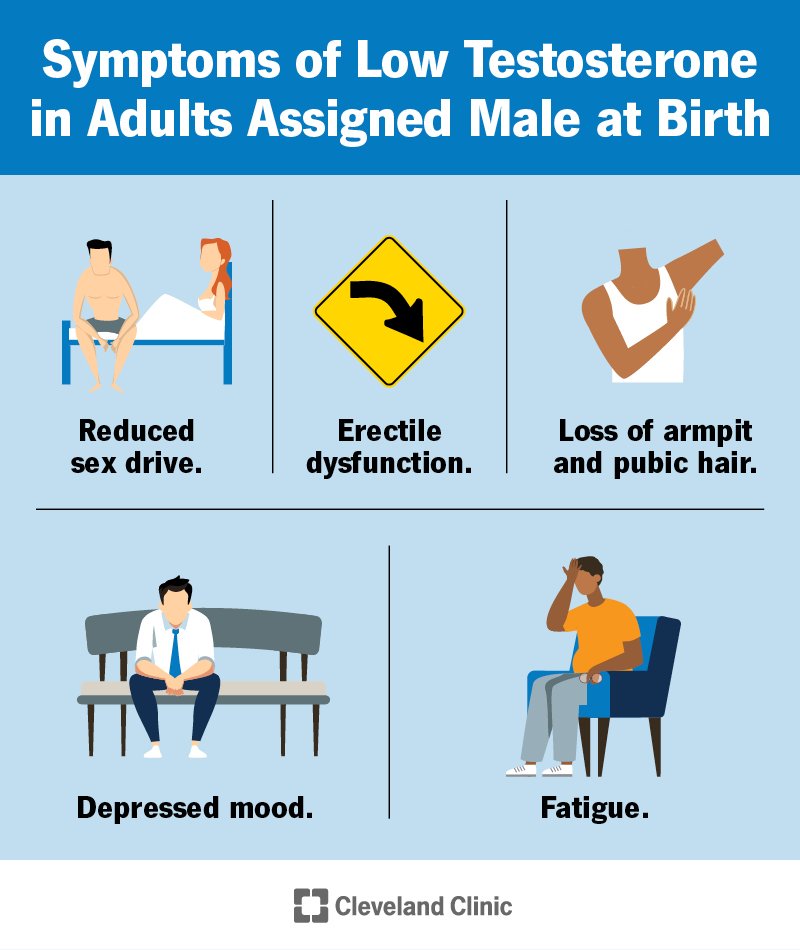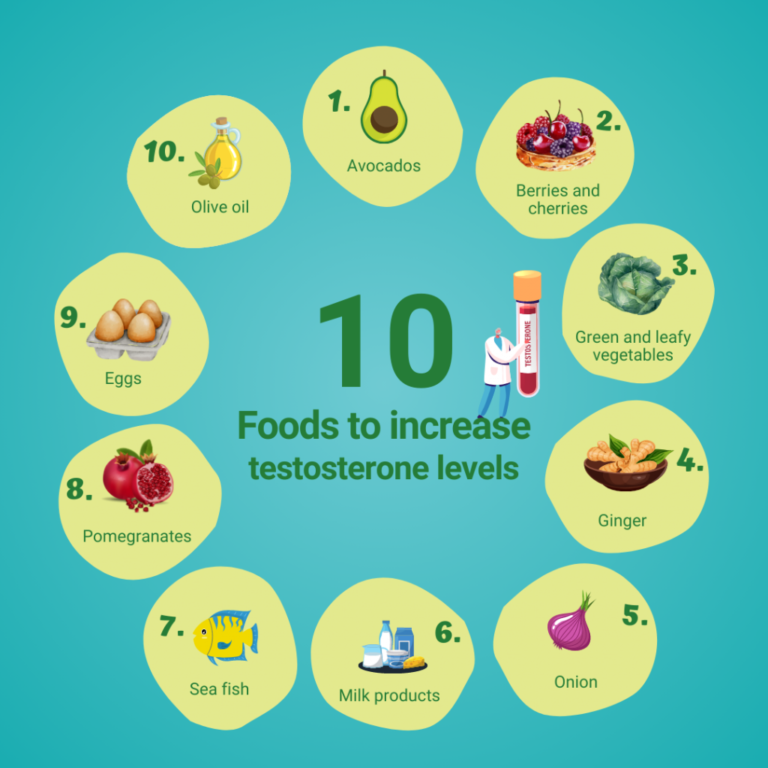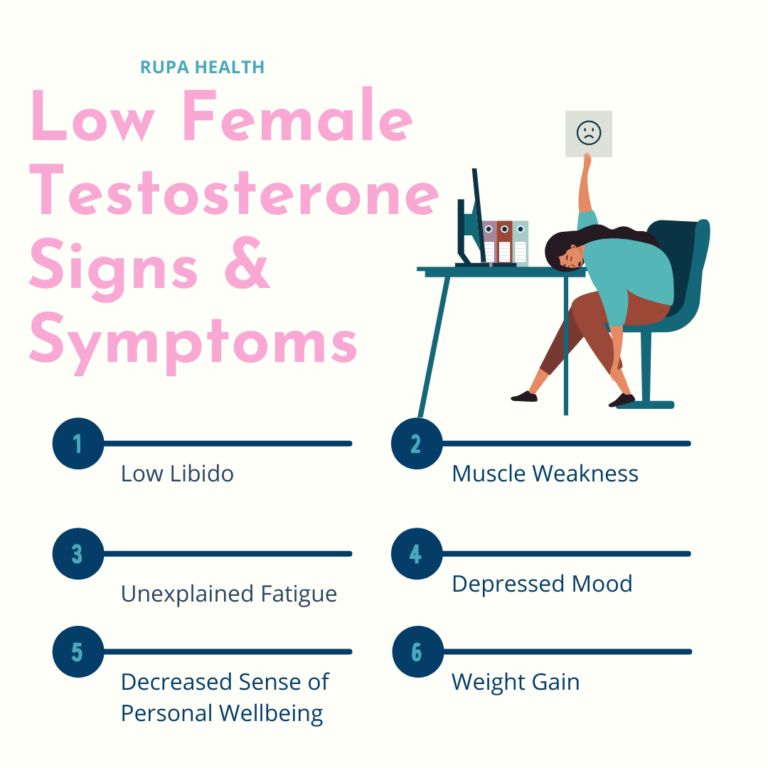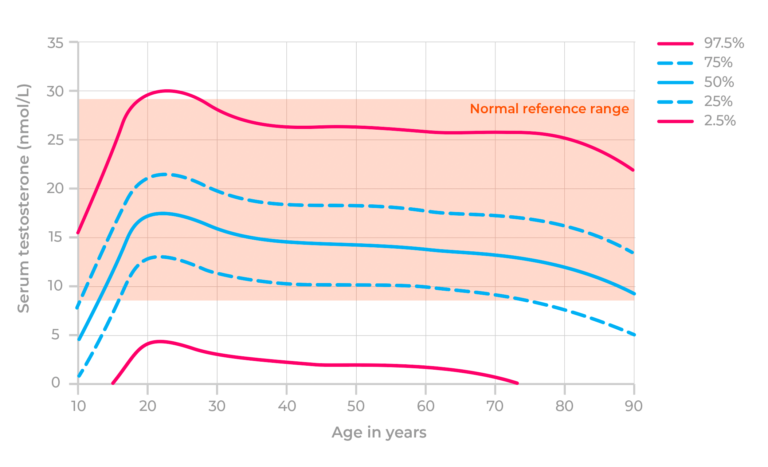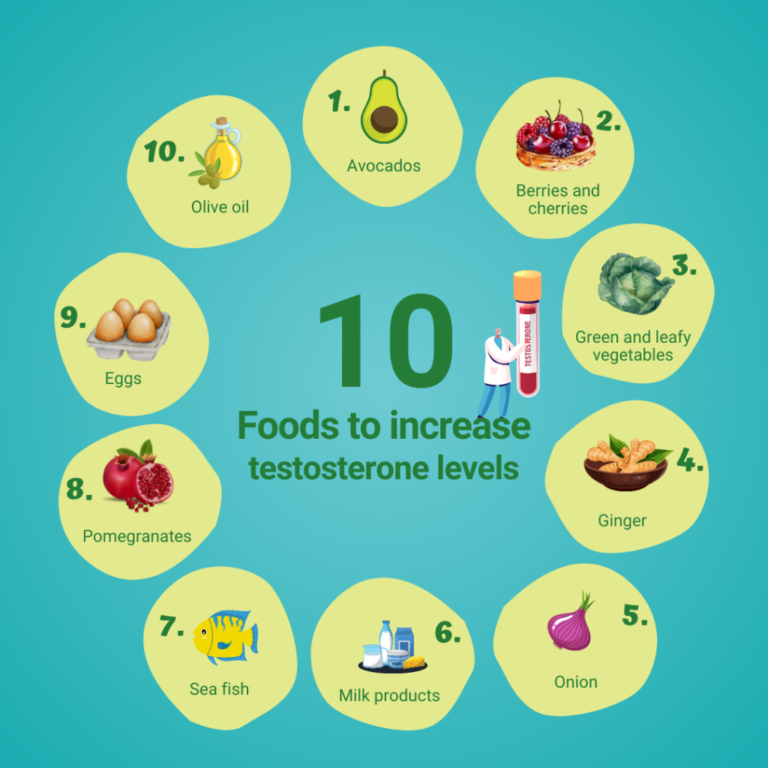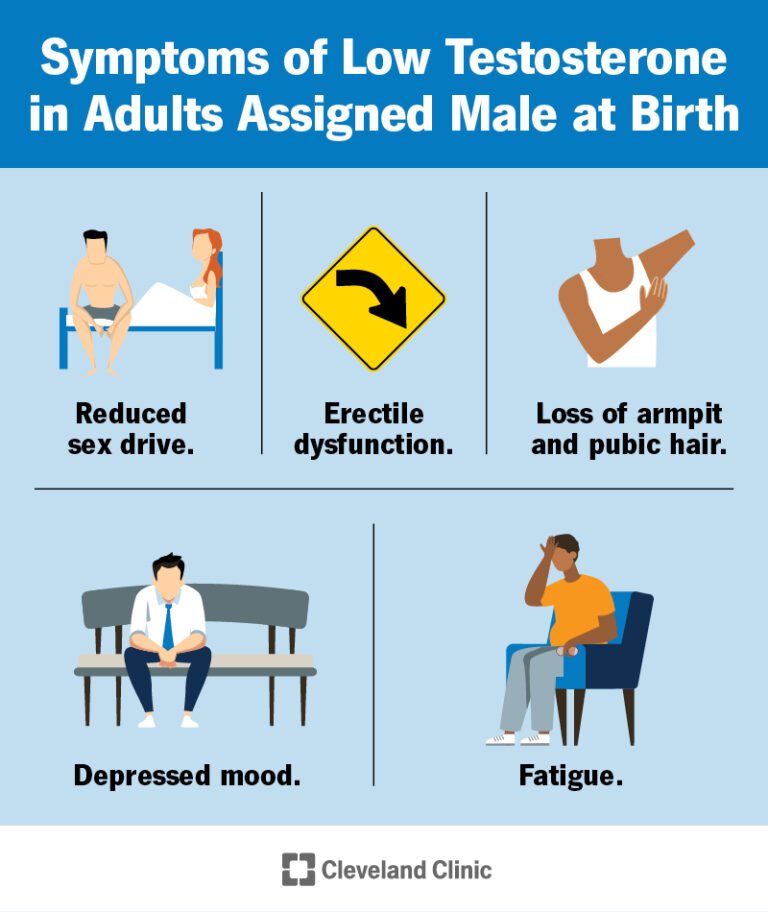Low Testosterone Symptoms in Men: Warning Signs You Shouldn’t Ignore
Low testosterone in men can cause fatigue, reduced libido, and muscle loss. These symptoms impact daily life and well-being.
Testosterone is a crucial hormone in men, responsible for various physical and emotional functions. Low levels can lead to noticeable changes, including decreased energy, diminished sex drive, and muscle mass reduction. Men may also experience mood swings, depression, and difficulties in concentration.
Detecting these symptoms early can help in seeking appropriate medical advice. Maintaining a healthy lifestyle, including regular exercise and a balanced diet, can alleviate some symptoms. Consulting a healthcare provider for proper diagnosis and treatment is essential. This ensures the right approach to managing and improving testosterone levels effectively.

Credit: trtuk.co.uk
Introduction To Low Testosterone
Low testosterone is a common issue among men. It can affect many aspects of health. Understanding its symptoms is crucial for early detection and treatment.
What Is Testosterone?
Testosterone is a hormone found in both men and women. In men, it is produced in the testicles. This hormone plays a key role in male development.
During puberty, testosterone helps boys develop male features. These include a deeper voice and facial hair. It also supports muscle growth and bone density.
Importance In Men’s Health
Testosterone is vital for overall male health. It affects physical, mental, and sexual well-being. Here are some key roles of testosterone:
- Sexual Function: It boosts libido and supports erectile function.
- Muscle Mass: Helps in building and maintaining muscle.
- Bone Density: Strengthens bones and prevents fractures.
- Mood Regulation: Influences mood and mental health.
- Energy Levels: Provides vitality and reduces fatigue.
| Role | Description |
|---|---|
| Sexual Function | Increases libido and supports erection. |
| Muscle Mass | Builds and maintains muscle. |
| Bone Density | Strengthens bones and prevents fractures. |
| Mood Regulation | Improves mood and mental health. |
| Energy Levels | Boosts energy and reduces fatigue. |
Recognizing the importance of testosterone is the first step. It helps in understanding the symptoms and seeking timely help.
Common Symptoms
Low testosterone levels can significantly impact a man’s health. Recognizing common symptoms can help in early diagnosis and treatment. Below are some of the most frequent symptoms men experience due to low testosterone.
Fatigue And Low Energy
One of the most noticeable symptoms is fatigue. Men often feel tired even after a full night’s sleep. This constant feeling of low energy can affect daily activities and productivity.
To better illustrate how energy levels change, consider the following:
| Time of Day | Energy Level |
|---|---|
| Morning | Low |
| Afternoon | Very Low |
| Evening | Exhausted |
Reduced Muscle Mass
Low testosterone can lead to a decrease in muscle mass. Men may notice they are not as strong as before. This reduction in strength can make even simple tasks more difficult.
Here are some common signs of reduced muscle mass:
- Difficulty lifting weights
- Less muscle definition
- Increased body fat
Regular physical activities become more challenging, impacting overall health and well-being.
Emotional Changes
Low testosterone levels can cause significant emotional changes in men. These changes can affect daily life and mental well-being. Understanding these emotional shifts is crucial for managing symptoms effectively.
Mood Swings
Men with low testosterone often experience sudden mood swings. This can mean feeling happy one moment and sad the next. These mood swings can disrupt daily activities and relationships.
Here are some common mood swing symptoms:
- Frequent irritability
- Unexplained anger
- Sudden sadness
These symptoms can make it hard to enjoy life. Recognizing them early can help in seeking timely treatment.
Depression And Anxiety
Low testosterone levels can also lead to depression and anxiety. Men may feel hopeless or anxious without any clear reason. These feelings can make daily tasks seem overwhelming.
Here are some signs of depression and anxiety due to low testosterone:
| Depression Symptoms | Anxiety Symptoms |
|---|---|
| Persistent sadness | Constant worry |
| Loss of interest in activities | Restlessness |
| Fatigue | Difficulty concentrating |
These symptoms should not be ignored. Seeking help from a healthcare professional can provide relief and improve quality of life.
Sexual Health Issues
Low testosterone levels can significantly impact a man’s sexual health. The hormone testosterone plays a crucial role in maintaining libido and erectile function. Let’s explore some common sexual health issues associated with low testosterone.
Low Libido
Low testosterone often leads to a decreased sex drive. Men with low testosterone may find their interest in sexual activities dwindling.
This can strain relationships and affect overall well-being. A healthy sex drive is important for intimate relationships and self-esteem.
| Symptoms | Effects |
|---|---|
| Reduced interest in sex | Relationship stress |
| Less spontaneous erections | Decreased confidence |
Erectile Dysfunction
Low testosterone can contribute to erectile dysfunction (ED). ED is the inability to achieve or maintain an erection.
Testosterone is essential for stimulating penile tissues to produce nitric oxide. This chemical is crucial for erectile function. Without enough testosterone, men may struggle with ED.
- Difficulty getting an erection
- Difficulty keeping an erection
- Reduced sexual satisfaction
These symptoms can lead to frustration and emotional distress. Addressing low testosterone can help alleviate ED symptoms.
Cognitive Effects
Low testosterone levels in men can lead to various cognitive effects. These effects can significantly impact daily life and mental well-being. Understanding these cognitive symptoms is crucial for early detection and effective management.
Memory Problems
Men with low testosterone may experience memory problems. This can manifest as difficulty recalling recent events or information. It can also lead to forgetting appointments or important dates. These memory issues can be frustrating and may impact work and personal life.
Common memory problems include:
- Forgetting names
- Misplacing items
- Struggling to remember tasks
These issues can be subtle at first but may worsen over time. Keeping track of these symptoms can help in seeking timely medical advice.
Difficulty Concentrating
Another cognitive effect of low testosterone is difficulty concentrating. Men may find it hard to focus on tasks or stay attentive during conversations. This can affect job performance and personal relationships.
Signs of difficulty concentrating include:
- Struggling to complete tasks
- Easily distracted
- Frequent daydreaming
These symptoms can lead to decreased productivity and increased stress. Identifying and addressing these issues early can help manage the cognitive effects of low testosterone.
:max_bytes(150000):strip_icc()/Low-testosterone-5216619_txt_final-f54332d26a124869bb49e110d5d09d2f.png)
Credit: www.verywellhealth.com
Physical Changes
Low testosterone levels in men lead to noticeable physical changes. These changes can affect daily life and overall well-being. Understanding these symptoms is important for early detection and treatment.
Increased Body Fat
Men with low testosterone may experience an increase in body fat. This fat often accumulates around the abdomen. Men might notice their waistline expanding. This can be frustrating and affect self-esteem.
Low testosterone can also lead to a condition called gynecomastia. This is the development of breast tissue in men. This physical change can cause discomfort and embarrassment.
| Symptom | Description |
|---|---|
| Abdominal Fat | Increased fat around the stomach area. |
| Gynecomastia | Development of breast tissue in men. |
Thinning Hair
Thinning hair is another common symptom of low testosterone. This includes hair loss on the head, face, and body. Men might notice their hair becoming finer and falling out more easily.
Hair thinning can be distressing and affect a man’s confidence. Below are some key points about hair thinning due to low testosterone:
- Hair loss on the scalp
- Reduced facial hair growth
- Less body hair
Addressing these symptoms early can help manage and reduce their impact.
Long-term Health Risks
Low testosterone levels in men can lead to serious health problems. These long-term risks can affect overall well-being and quality of life. Understanding these risks can help in early detection and management.
Heart Disease
Low testosterone can increase the risk of heart disease. This can result in higher cholesterol levels and high blood pressure. Men with low testosterone may also experience weight gain. These factors contribute to cardiovascular problems.
| Risk Factor | Impact |
|---|---|
| High Cholesterol | Leads to artery blockage |
| High Blood Pressure | Strains the heart |
| Weight Gain | Increases heart workload |
Osteoporosis
Osteoporosis is another significant risk of low testosterone. This condition weakens the bones. Men with low testosterone are more likely to suffer from fractures. They may also experience bone pain and reduced mobility.
- Bone fractures
- Bone pain
- Reduced mobility
Maintaining healthy testosterone levels can help protect bone health. Regular check-ups and a balanced diet are essential.
When To See A Doctor
Recognizing when to see a doctor for low testosterone symptoms is crucial. Early intervention can prevent complications and improve quality of life. Men often feel embarrassed discussing these symptoms, but medical advice is essential.
Importance Of Early Diagnosis
Early diagnosis of low testosterone can halt further health issues. Common symptoms like fatigue, low libido, and mood swings should not be ignored. Identifying these symptoms early can lead to effective treatment.
Delaying a visit to the doctor can worsen symptoms. It can also lead to severe health problems like osteoporosis and heart disease.
Treatment Options
There are multiple treatment options available for low testosterone. Doctors may suggest testosterone replacement therapy (TRT). TRT includes gels, injections, and patches.
Lifestyle changes can also help manage symptoms. A balanced diet, regular exercise, and adequate sleep are beneficial. Some men may benefit from counseling or therapy to address emotional symptoms.
| Symptom | Possible Treatment |
|---|---|
| Fatigue | Testosterone gels, lifestyle changes |
| Low Libido | Testosterone injections, therapy |
| Mood Swings | Counseling, TRT |

Credit: www.singlecare.com
Frequently Asked Questions
What Happens If A Man’s Testosterone Is Low?
Low testosterone in men can cause fatigue, depression, reduced muscle mass, low libido, and difficulty concentrating. It may also lead to weight gain and hair loss.
How Do I Fix My Low Testosterone?
To fix low testosterone, consult a doctor. Exercise regularly, eat a balanced diet, get enough sleep, and reduce stress.
What Is The Fastest Way To Increase Testosterone?
Exercise regularly, eat a balanced diet rich in proteins and healthy fats, get enough sleep, and manage stress effectively.
How Can I Help My Husband With Low Testosterone?
Encourage a healthy diet and regular exercise. Consult a doctor for medical advice. Reduce stress and ensure adequate sleep. Avoid alcohol and smoking.
Conclusion
Recognizing low testosterone symptoms in men is essential for maintaining health. Early detection can prevent further complications. Consult a healthcare professional if you notice any signs. Proper treatment and lifestyle changes can significantly improve your quality of life. Stay informed and proactive about your health to ensure overall well-being.
